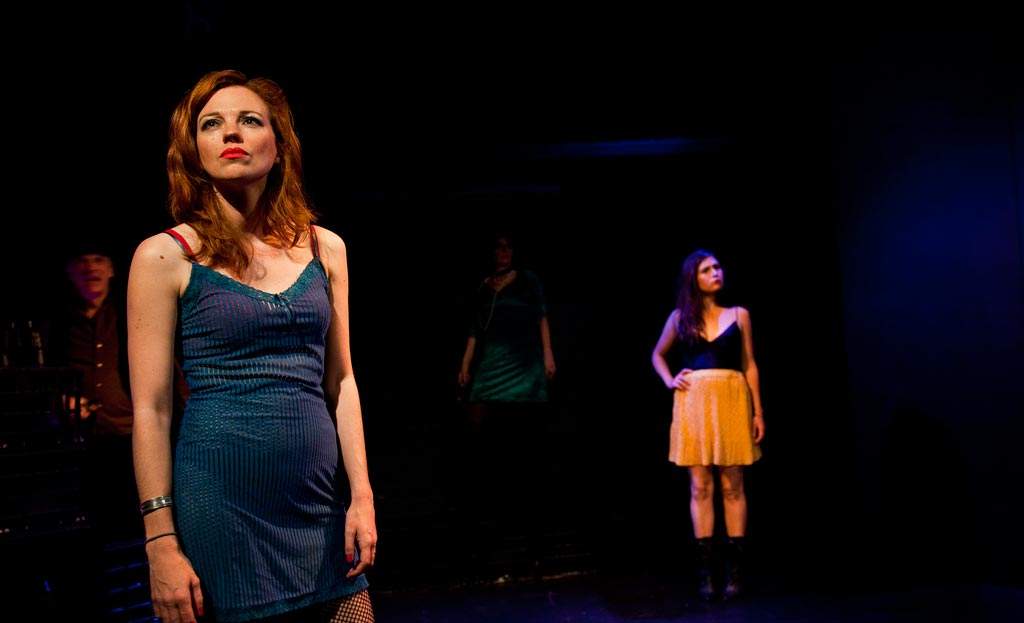Roberto Zucco – Le Theatre des Assassins
Le Theatre des Assassins brings a notorious serial killer to the Old Fitzroy Theatre.
Overview
Roberto Succo (aka Roberto Zucco) murderer, kidnapper, hijacker, thief was Europe's Public Enemy Number One during the early '80s. He was also a womaniser with movie-star looks and a chilling ability to charm. At just 26, he committed suicide following a failed escape attempt from an Italian prison. Shortly afterwards, French playwright Bernard-Marie Koltes transformed Zucco's brief, strange, tormented and tormenting life into a play. Titled Roberto Zucco, it turned out to be Koltes’s final work and was first performed posthumously in Berlin in 1990, under Peter Stein's direction.
“Killers never look like killers,” Zucco explains, in a calm, controlled tone. “Killers go for quiet little strolls in the crowd, just like you and me.” Koltes’s script, like Truman Capote’s In Cold Blood, attempts to go beyond the hysteria of headlines, to explore the murderer as human. Zucco appears as a Hamlet-like philosopher (minus the innocence and indecision), tortured by his own mortality, agonisingly alienated, capable of kindness and even poetry, yet driven to kill.
We don’t learn anything more, in terms of specific motivations. An absurdist-influenced, fragmented structure depicts Zucco's deranged mind, darting from cold calculation to insane ranting, with vignettes presenting various heinous crimes, from the strangling of his mother to the shooting of a teenager to the seduction of a virgin who falls hopelessly in love with him.
Le Theatre des Assassins, a brand-new company promising to “keep the Sydney theatre scene alive and awake with controversial, innovative, thoughtful, quirky and immensely entertaining theatre” brings Koltes’s script to the Old Fitz stage via Martin Crimp’s English translation and a minimalist yet visually striking production. Yvonne Hocothee’s set features piles of black milk crates as the only props (with the exception of a few guns) and two expansive vertical panels lit (by Larry Kelly) in a spectrum of colours, shifting the mood deftly and effectively. Occasionally, the characters slip behind them, transforming into larger-than-life silhouettes.
Director Anna Jahjah’s interpretation is big on physicality. The actors move about the stage in broad, sweeping gestures. The menace of abuse be it murder-to-victim or brother-to-sister, psychological or sexual, potential or real is depicted through disturbingly forceful contact. At first, it’s arresting, but after a while, too much of a good thing results in a loss of impact. As the great musician Sun Ra famously said, “Space is the place.”
Tim Cole plays a suitably handsome but not overly convincing Roberto Zucco. Somehow, he’s just not mad, bad or potent enough. Gemma Scoble, as the deflowered-virgin-turned-prostitute who we know only as ‘The Girl’, is similarly insufficient. We need her to be more vulnerable, more shocked, more desperate. ‘The Sister’ (Danielle Stamoulos) has the opposite problem, overdoing her character to the point that we’re constantly aware she’s acting. ‘The Brother’ (Lucas J. Connolly) is appropriately brutish and intimidatory, but doesn't do fragile so well.
Some of the minor parts were played with more punch. Adrian Barnes is the stand-out, displaying his depth and flexibility as both ‘The (frenzied, alcoholic) Father’ and The Old Gentleman whose helplessness elicits an unexpected show of compassion from Zucco. The same goes for Lyn Pierse, who plays the murderer’s despairing mother, a comedic knitting woman and ‘The Madam’ of a brothel. Her 'Panic-Stricken Prostitute', Delphine Vuagnoux, is charismatic and real, while Sam Dugmore and Neil Modra demonstrate adept comic timing as well-meaning but hopeless guards and detectives.
In selecting Robert Zucco as their first-ever production, Le Theatre des Assassins have taken on a challenge. They’ve affirmed their vision as a quirky, dynamic company but still have some fine-tuning to do, which is to be expected, given that few artistic endeavours emerge fully formed. Let's see what happens next.





